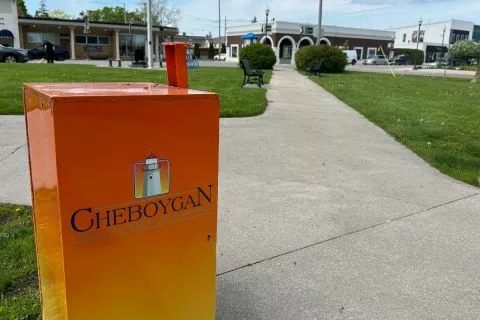It’s a good question, and one that isn’t as easy to answer as in the past, when every community had at least one newspaper that would spill a lot of ink on interviews with candidates for local offices.
Related:
Some communities are facing more ballot anxiety than others. Michigan communities that have lost newspapers or watched in frustration as their papers became thinner and thinner may have to scramble to find candidate information.
But with a little perseverance, voters can still snag details about candidates for local offices that can help them decide whose name to check on election day.
- The League of Women Voters sponsors a handy website with candidate information on every race you’ll see on your local ballot. That website, www.401vote.org also features responses from all candidates who answer survey questions issued by the organization. The website for Michigan is expected to be operational by June 27.
- Bridge Michigan’s Voter Guide has sample ballots and a ton of other information, including tools to find your lawmakers.
- The Secretary of State an online voter information guide to check whether you’re registered to vote, how to request an absentee ballot and what you’ll see on the ballot. Other good resources include Ballotpedia and VoteSmart.
- Lisa McGraw, public affairs manager for the Michigan Press Association, offers another option in southeast Michigan that arrives in your mailbox weekly. C&G Newspapers send free papers to 40 communities in Oakland and Macomb counties as well as the five Grosse Pointes. Those papers, tailored to those communities, typically include detailed local election information at some point before the primary (this year on Aug. 6). “They’re free, they land in your mailbox every week, but they have the local government information,” McGraw said.
- For those who like to hunt on social media, candidates often have election-specific Facebook pages and/or websites.
- Likewise, an hour or so Googling candidates can provide a host of information about their past, whether they’ve made the news and link to their campaign websites.
- Curious about funding? The Michigan Secretary of State’s campaign finance website has reports on who is donating to candidates and how they spend their money. Local candidates file campaign finance reports with county clerks and are typically available online.
- Check your mail: Especially in busy races, campaigns send out a host of flyers or campaign races. They can be informative. But make sure you read with a skeptical eye, as the information often portrays candidates in the best — or worst — possible light.
- When all else fails, the best bet is often the simplest: Talk to your neighbors and community members. Attend City Council meetings or community forums. And, especially for municipal issues, scour through meeting minutes or agendas that are available on city websites.


